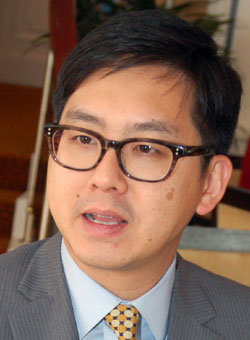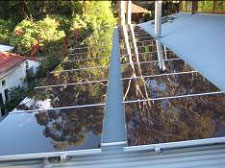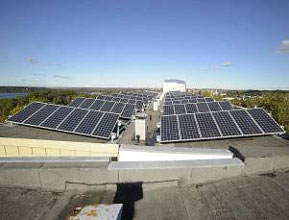
LAST YEAR was tough for the global solar industry, with US solar panel makers like Solyndra, Evergreen Solar and SpectraWatt filing for bankruptcy.
However, for a cost-competitive player like Singapore-listed Anwell Technologies, which has its manufacturing base in China, it was a year when business took off.
In Europe, government austerity measures eliminated subsidies for solar projects.
The reduced demand coupled with increasing overcapacity in solar panel manufacturing in the past 3 years sent panel prices plummeting 25% last year.
At prices that solar panels are currently commanding, many companies cannot survive the margin squeeze.
Yet, Anwell was able to generate HK$212.8 million from its solar manufacturing and trading revenue in FY2011 after deducting segment expenses, compared with a segment loss of HK$21.1 million in FY2010.
“Competitors with high cost structures in Europe and America are going bankrupt but this helps us as there will be less competition,” said Anwell’s executive director and CFO Ken Wu in an interview with NextInsight in Singapore.
“More importantly, the solar market is still growing in the long run,” he said. The global photovoltaic market had been growing at a CAGR of close to 40% over the past decade.
Anwell’s main markets for its solar business are China, India, Thailand and Australia, where it has commenced business development activities for more than two years.

EPC contractor for solar projects
Last month, it announced a first: it had secured an engineering procurement and construction (EPC) contract worth US$25 million for the construction of a solar power plant in Thailand.
In the past, Anwell has only been involved in manufacturing of solar panels and trading of related products. This is its first EPC contract for a solar project and its first foray into Thailand.
Being an EPC contractor means that there will also be business from Anwell's procurement of 'balance-of-system' components such as cables, inverters and frames for the solar project.
Under the terms of the EPC contract, Anwell’s wholly-owned subsidiary, Sungen, will provide a one-stop solution which includes the design of installation, procurement of materials and construction.
The project is expected to complete by the end of 2Q2012 and contribute positively to Anwell's FY2012 results.
”We hope to grow not only our solar panel manufacturing business, but to also take on more EPC or large scale BOT (build-operate-transfer) projects,” said Mr Wu.
Anwell’s second solar plant - which is in Dongguan - is expected to be fully operational by the end of 2012. That is when Mr Wu expects revenue contribution to kick in from the additional capacity.


The Group received more than one billion RMB in government grants last year for its Dongguan plant.
With the grants, its balance sheet which carries current borrowings of HK$2.1 billion, is now much improved. Cash in hand increased to HK$1.8 billion as at end-2011.
Mr Wu foresees that its solar business will eventually replace its traditional optical disc division as the Group’s key cash driver.
Revenue contribution from the manufacturing of optical discs fell from 67.3% in FY2010 to 54.0% in FY2011.
On the other hand, Anwell nearly doubled its solar business revenue to HK$477.7 million (up 93%) in FY2011, growing this segment to account for one third of Group revenue.
During 2008 and 2009, its optical disc division had been a cash cow that funded its R&D investments in the solar division but, last year, demand for Blu-ray discs did not develop according to expectations and resulted in an impairment of HK$512 million on property, plant and equipment, goodwill and intangible assets.
“Disc prices have been falling and material cost increased. We foresee a continued margin squeeze in our optical disc business,” said Mr Wu.
Keen competition in its media products business may have dampened sales, but Mr Wu maintained that the Group had no intention to sell this segment as long as it provides a positive cash flow.
NRA Capital analyst Jacky Lee said in a recent report that Anwell could be saving about HK$100m depreciation expenses a year as a result of the impairment. "As such, we reverse our FY12 forecast from net loss HK$89m to net profit HK$12m."
His estimate of the fair value of Anwell stock is 31 cents.
Previous stories: ANWELL: Why China Municipal Government Injected Rmb 800 Million
Anwell enters India solar market with US$20m contract







